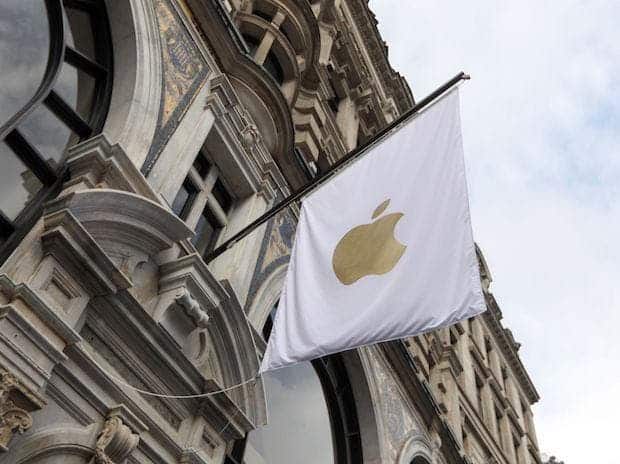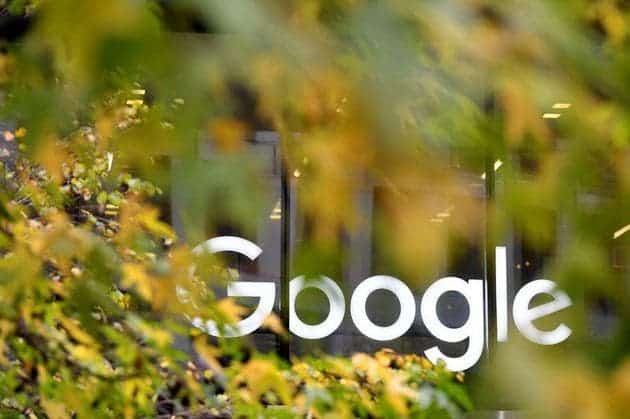[ad_1]
On February 8, a California judge dismissed a class-action lawsuit accusing Apple and Google of conspiring to suppress the search market. The lawsuit was brought by Google users who claimed that Google’s default search agreement with Apple has inhibited competition in the search market. According to the Judge, the plaintiff’s lawsuit did not provide sufficient evidence to support their claim. The California judge, Rita Lin dismissed all claims filed by the plaintiff. However, one of the claims was retained and the plaintiff can file a second amended complaint within the next 30 days.

Background
This lawsuit accuses Apple and Google of conspiration. The class-action lawsuit is accusing Apple and Google of conspiring to suppress the search market. The lawsuit was filed by users who argued that Google struck a deal making its search engine the default on Apple’s Safari web browser. They claim that this was done specifically to keep Apple from competing in the general search market. The lawsuit suggested that the CEOs of the two companies met in secret to collude on the suppression of the search market.
However, in a similar case last year, Apple made it clear that Google Search is the default search engine on its browser because it was the “best option”. Eddy Cue, the senior vice president of services at Apple, played a key role in the Google search case. He prepared to testify in the trial about the $19 billion search deal between Apple and Google. Cue argued that Google was chosen as the default search engine on Apple devices because it was the best option. He also argues that Apple saw no reason to develop its search engine. He also highlighted that Apple has revenue-sharing agreements with competing search engines and that Apple users can change their default search engines.
Sometime last year, Bernstein, an advisor for institutional investors published a report that looks into the Google – Apple deal. One of the major interest areas in the case is the Information Services Agreement (ISA) between Apple and Google. At the time, Bernstein in the report sent to The Register.
“We estimate that the ISA is worth $18 billion – $20 billion in annual payments from Google to Apple, accounting for 14-16 per cent of Apple’s annual operating profits.”
The Lawsuit
The class-action lawsuit accused Apple and Google of conspiring to suppress the search market. The plaintiffs claimed that Google’s default search agreement with Apple has inhibited competition in the search market. However, the judge was not convinced by the evidence that the plaintiffs brought to court to prove their claims.

In the first count of the lawsuit, the judge outrightly dismissed the claims for lack of merit. The judge did not even grant any amendment for the count charge. The first count charge was that Apple and Google reached a secret agreement in which Google paid Apple a certain amount of money to require the latter not to compete in the search business.
The second complaint alleges that Apple and Google’s exclusive default search engine agreement eliminates the opportunity for competition. According to the judge, the plaintiffs did not provide enough evidence to show how the deal affected competition. However, the judge gave the plaintiffs 30 days to amend the charge if they chose to do so. If they choose to amend the claim, the court will have to re-examine the amended claim to see whether it has any merit.
Gizchina News of the week
In another charge, the plaintiffs were unable to prove harm caused by antitrust or the alleged conduct. The judge therefore dismissed the plaintiff’s claim. The judge did not allow the plaintiffs to amend the claim and also rejected the plaintiff’s claim for compensation.
What is the Information Services Agreement (ISA)
The Information Services Agreement (ISA) between Apple and Google is a deal that makes Google’s search engine the default on Apple’s products. The ISA has been in place since 2002 and was last renewed in 2016, with Google paying Apple tens of billions of dollars for this arrangement. It is estimated that Google pays Apple between $18 billion to $20 billion a year. This fund is to keep its search engine as the default on the iPhone. It accounts for 14-16 per cent of Apple’s annual operating profits.
The agreement does not permit Apple users to choose a default search option. This deal brings a significant portion of Apple’s profits. The deal has been a subject of interest in the context of antitrust investigations, with some suggesting that it may be an example of anti-competitive behaviour. The agreement has been the topic of a confusing and secretive antitrust trial involving Google and Apple. The latest ruling from the U.S. court suggests that the ISA deal between Google and Apple is not an issue.

Final Words
The recent dismissal of the class-action lawsuit against Apple and Google regarding their alleged conspiracy to suppress the search market marks a significant development in the ongoing scrutiny of their business practices. The lawsuit, brought by Google users, accused the two tech giants of colluding. They claim that Apple and Google colluded to maintain Google’s dominance as the default search engine on Safari web browsers. The plaintiffs believe that this inhibits competition in the search market.
The California judge’s decision to dismiss the majority of the claims due to insufficient evidence underscores the complexity of antitrust litigation in the tech industry. The plaintiffs failed to convince the court of the alleged collusion between Apple and Google. However, the judge did allow for the possibility of amending one of the claims within a specified timeframe.
The Information Services Agreement (ISA) between Apple and Google, which designates Google’s search engine as the default on Apple’s products, has been a focal point of antitrust investigations and legal disputes. The ISA is estimated to be worth billions of dollars annually. It has raised concerns about its potential anti-competitive implications and its impact on market competition.
However, the court’s ruling suggests that, at least for now, the ISA agreement between Apple and Google is not deemed unlawful or anti-competitive. Despite ongoing scrutiny surrounding the deal, the dismissal of the lawsuit indicates that the court did not find sufficient evidence. There is not enough evidence to support the plaintiffs’ claims of collusion and harm to competition in the search market.
Nevertheless, the dismissal of the lawsuit does not necessarily resolve broader questions about competition and market dominance in the industry. As regulatory scrutiny intensifies and public awareness grows, stakeholders will continue to closely monitor developments.
Author Bio
Efe Udin is a seasoned tech writer with over seven years of experience. He covers a wide range of topics in the tech industry from industry politics to mobile phone performance. From mobile phones to tablets, Efe has also kept a keen eye on the latest advancements and trends. He provides insightful analysis and reviews to inform and educate readers. Efe is very passionate about tech and covers interesting stories as well as offers solutions where possible.
[ad_2]
Source link